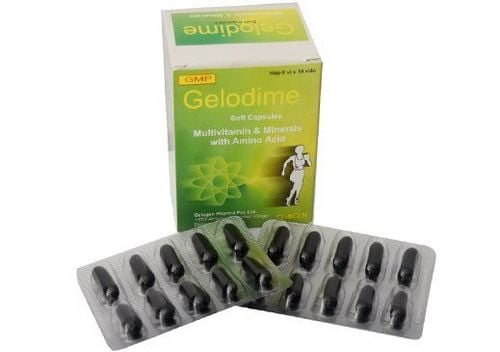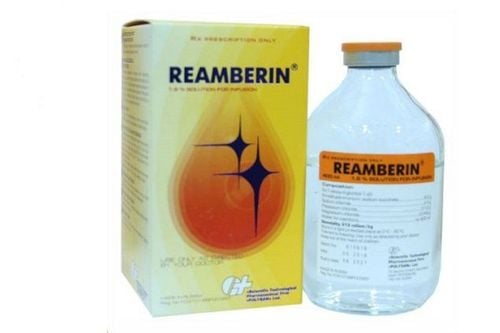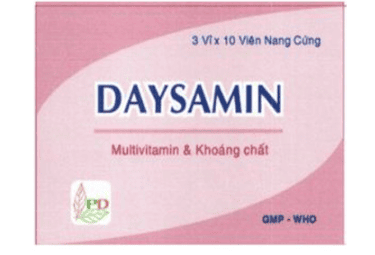This is an automatically translated article.
Digestive disorders in young children are quite common when the child's digestive system is still too immature, prone to intestinal problems such as vomiting, bloating, diarrhea, indigestion, constipation . Prolonged digestive disorders in children not only make children tired, but also affect the ability to absorb nutrients and the development of children.
1. Overview of common digestive disorders in children
Infants and young children often have an unstable digestive system, making them susceptible to digestive disorders when changing their diet suddenly. Although digestive disorders in young children are not dangerous, they can affect the child's ability to absorb the nutrients necessary for their development, leading to problems such as anorexia, malnutrition, and rickets. ...
Common digestive disorders in children include:
Vomiting (gastroesophageal reflux) Bloating, passing raw stool Diarrhea, dehydration. Constipation.

Hệ tiêu hóa còn quá non yếu và chưa ổn định dễ gây ra tình trạng rối loạn tiêu hóa ở trẻ
2. Causes of digestive disorders in children
There are many causes of long-term digestive disorders in children, some of the main causes can be mentioned as follows:
Children's resistance is weak: When young, the child's immune system is very immature. The beneficial microorganisms in the intestinal tract are not strong enough to protect the body, so the child is easily attacked by harmful bacteria, leading to digestive disorders. Improper diet and nutrition: When the diet is not balanced and the portion is limited, the child will have symptoms such as bloating, indigestion, and nausea after eating a full meal. eat a lot of fat and protein or eat a lot of certain foods. Some other parents misunderstand the child's diet, such as: giving solid foods too early, giving them indigestible foods such as corn, cassava, brown rice..., foods containing a lot of protein, sugar, etc. grease..., feeding children unsanitary food...etc. All these mistakes are the cause of digestive disorders in young children. Food poisoning: A dangerous condition that occurs when children eat unhygienic, raw, stale, improperly processed or contaminated water. Warning signs of food poisoning in children are abdominal pain, vomiting, repeated diarrhea, fever, mucus or bloody stools, sometimes diarrhea mixed with constipation. Side effects of antibiotics: Usually occurs in children during or shortly after antibiotic treatment. The reason is that antibiotics not only kill pathogenic bacteria but also destroy beneficial bacteria of the intestinal tract, causing an imbalance in the intestinal microflora, leading to difficult-to-control bowel movements, raw feces, and digestion. diarrhea, constipation. The surrounding environment is not hygienic: children come into contact with infected pets, toys, and utensils. Not washing hands thoroughly before eating or after going to the toilet also creates conditions for bacteria and helminth infections, causing digestive disorders in young children. Pathological causes: Children can completely suffer from diseases of the gastrointestinal tract such as colitis, gastritis, peptic ulcer disease, enteritis, etc. Intestinal causes are digestive disorders. It is necessary to thoroughly treat the sources of the above diseases to overcome the long-term digestive disorders in children.

Có rất nhiều nguyên nhân dẫn tới rối loạn tiêu hóa kéo dài ở trẻ em
3. How to handle when children have digestive disorders
As soon as children show signs of digestive disorders, parents should quickly take the following measures to improve the health status of children:
Process food into soft, chopped, easy-to-digestible forms, ensuring food safety. Tell your child to always eat cooked food and drink it hot. Divide food portions into several small meals throughout the day instead of just one large meal. Add foods that are good for the intestines such as yogurt, green vegetables, fruits that are high in fiber. Supplement enough water and electrolytes for dehydrated children with Oresol. Note that it is necessary to mix the correct ratio according to the instructions for use, for children to drink several times a day. You can consult your doctor to add probiotics to support the digestive system. Children should be supplemented with yeast containing a variety of beneficial bacteria strains and supplemented with prebiotics. In addition, to prevent gastrointestinal diseases that young children often suffer from, parents should pay attention to a diet to improve the child's resistance. At the same time, add supporting foods containing lysine, essential micro-minerals and vitamins such as zinc, chromium, selenium, B vitamins,... snacks and less digestive problems.
In general, taking care of the health of the digestive system plays a very important role in the long-term physical development of children. Parents should pay attention to the causes of digestive disorders in children so that they can adjust and prevent unnecessary problems.













